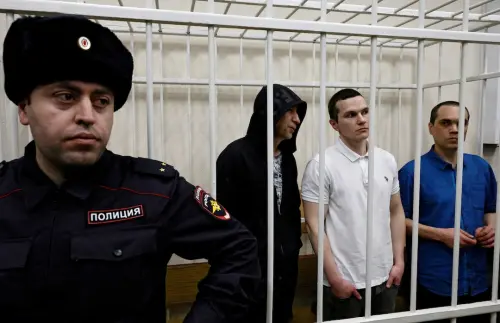In August last year, a middle-aged Russian woman wearing a mask walked onto Moscow's Red Square, where she scattered colored rubber balls inscribed with political slogans. Two weeks later, another activist, Vera Novikova, received a 15-day jail sentence and a fine for displaying "extremist symbols" related to the incident.
Although Novikova declined to comment through her lawyer, the Kremlin remained silent. The protester, inspired by the memory of deceased opposition leader Navalny, felt motivated to honor past acts of dissent in Russia. Fearing arrest, she left for Europe, citing a reluctance to live in a "dictatorship."
Since Navalny's death, numerous Russians have faced arrest, trial, and imprisonment for their association with him. The Russian government has intensified its crackdown on any form of support for Navalny, viewing it as a threat to stability.
Despite ongoing pressure, the Kremlin's efforts to suppress dissent continue. However, the effectiveness of such measures on Russian activists remains uncertain amid economic challenges and opposition groups' struggles to maintain relevance domestically.
The crackdown on Navalny supporters has had a deterrent effect on potential protesters, according to Russian political analyst Ekaterina Schulmann. The Kremlin's actions aim to signal a clear warning to discourage further dissent within the country.
Navalny's legacy lives on through the Anti-Corruption Foundation (ACF) he founded, based in Vilnius, which continues to expose corruption among Russian elites. Yet, supporting such initiatives comes with legal risks, as several individuals have faced criminal charges for contributing to the ACF's work.
Konstantin Kotov, a human rights advocate in Moscow, exemplified the risks associated with activism in Russia. Despite facing legal persecution for his involvement in various protests, Kotov praised Navalny's fearless engagement in politics, citing it as an inspiration for many Russians.
Kotov's recent escape from Russia amid pending charges highlights the challenges faced by dissidents seeking refuge abroad. He emphasized the difficulties individuals encounter when attempting to flee without proper documentation or external support.
The ongoing struggle of activists aligned with Navalny underscores the Kremlin's determination to suppress opposition voices, reflecting a broader trend of political repression in Russia.
